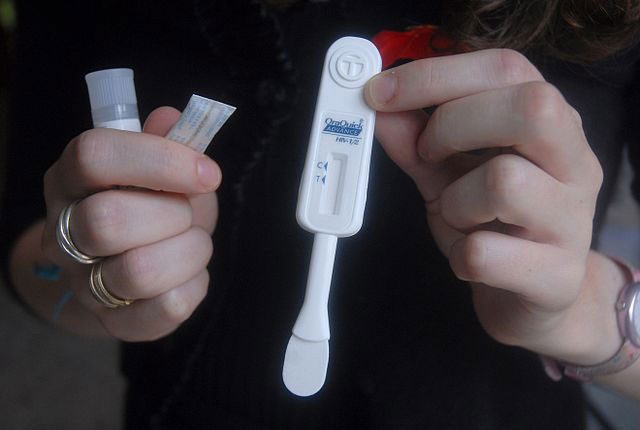
An educational institution in Baguio is being slammed for subjecting female students in selected colleges to mandatory pregnancy testing to instill social responsibility and prevent cases of miscarriages and abortion.
Writer Elizabeth Angsioco argued in a series of tweets that the new policy being enforced by Pines City Colleges is discriminatory and abusive in terms of the Republic Act 9710 or the Magna Carta for Women.
She also stated that it violates the student’s rights to privacy as an individual.
Pines City Colleges in Baguio conducts mandatory pregnancy tests on students. This is a clear violation of the Magna Carta of Women which prohibits all forms of discrimination against women (in this case, vs. pregnant students). This is also a violation of the right to privacy. pic.twitter.com/XvkJhFkNZ0
— elizabeth angsioco (@bethangsioco) November 6, 2018
Womens’ party-list GABRIELA also called out the school and cited that its policies perpetuate a “stigma that pregnancy is socially unacceptable.”
Social responbility?
This mandatory pregnancy test is discriminatory against women, violates the Magna Carta of Women, and perpetuates an old view and stigma that pregnancy is socially unacceptable and against the norm. pic.twitter.com/MZCWaDcFkC
— Gabriela WomensParty (@GabrielaWomenPL) November 6, 2018
In a letter released by the school’s physician to the deans and departmental heads of the College of Dentistry, Nursing and Pharmacy, all female students are supposed to go to the medical clinic and be tested for pregnancy in specified dates.
Students are required to shell out P150 for the pregnancy test, which would be conducted by registered medical technologists from an accredited laboratory.
If they are found to be pregnant, they would not be allowed to enroll in Clinical Dentistry or any subject that will “endanger both mother and child.”
The subjects affected are Roentgenology, Anesthesiology, Endodontics, Hospital Dentistry and Community Dentistry II and III.
There are also specific policies when the student gets pregnant at the start, during and towards the end of a school semester.
Failure to disclose the pregnancy will require the student to write an explanatory letter and drop the subjects she was supposed to be enrolled in. She would also be marked as ‘failed.’
The student is not allowed to commit abortion as it would cause her immediate expulsion from the school.
Right to have equal access to education
Elizabeth Angsioco in her tweets claimed that the policies are “discriminatory” to female students as they are all granted the right to have equal access to education under the Magna Carta for Women.
Section 13 of the law states that “no school shall turn out or refuse admission to a female student solely on the account of her having contracted pregnancy outside of marriage during her term in school.”
In addition, the Department of Education, the Commission on Higher Education and Technical Education and Skills Development Authority are supposed to prevent educational institutions from expelling, dismissing, suspending, refusing or denying a female students’ admission on the grounds of being pregnant.
She must not be forced to take a leave of absence but rather, be accorded a special leave “upon advice of the attending physician” when needed.
The school must also do everything in their capacity to help the student continue her studies, including giving her make up classes and examinations.
Rights to privacy
While Pines City Colleges mentioned that female students are supposed to disclose their state of pregnancy to their respective college dean, it must be noted that every individual has the right to privacy.
Article 26 of the Civil Code of the Philippines states that “every person shall respect the dignity, personality, privacy and peace of mind of his neighbors and other persons.”

Certain laws allow people to have their rights to privacy. (Creative Commons/File photo)
This includes “meddling with or disturbing the private life or family relations of another” and “vexing or humiliating another on account of his religious beliefs, lowly station in life, place of birth, physical defect, or other personal condition.”
The same right is included in Article 17 of the International Covenant on Civil and Political Rights by the United Nations, where the Philippines is a signatory.
The cited article states that “No one shall be subjected to arbitrary or unlawful interference with his privacy, family, home or correspondence, nor to unlawful attacks on his honor and reputation.”
‘Sense of responsibility’
According to a letter released by the school’s College of Pharmacy, the policies were created to “instill the sense of responsibility among students.”
They cited that “pregnancy among students is a condition resulting to medical, moral, social and economic issues.”
They also reasoned out that incidents of pregnancy among Pharmacy students had resulted in “absences, disruption of student’s regular status due to dropped and failed subjects, disruptive actions for the student and the college, drop-outs, cases of miscarriage and abortion.”
In a Facebook post released hours after the online uproar, the school maintained that they would still continue with their policies as it is “protective” of their students’ welfare.
Enter the Reproductive Health law
Republic Act 10354 or the Responsible Parenthood and Reproductive Health Act of 2012 (also known as the Reproductive Health Law) guarantees people to have universal access to contraception, fertility control, sexual education and maternal care.
It is seen as a preventive measure to teenage pregnancies. As of April 2018, it was revealed that the country has the highest rate of such cases among countries in Southeast Asia.
While the law was enacted on January 2013, it is still not fully enforced since there are certain sectors that continuously oppose it.
The RH law is only implemented in Benguet, which has received an initial amount of P3 million for the program. Ironically, it is the same region where the school is located.
The law enables people to have access to family planning services and information, thorough education and counseling on sexuality and reproductive health and access to emergency obstetric care, among others.








